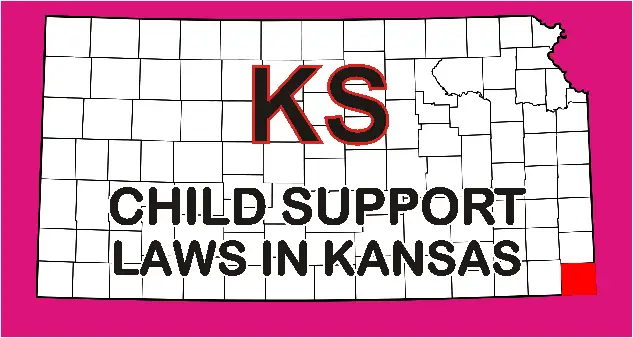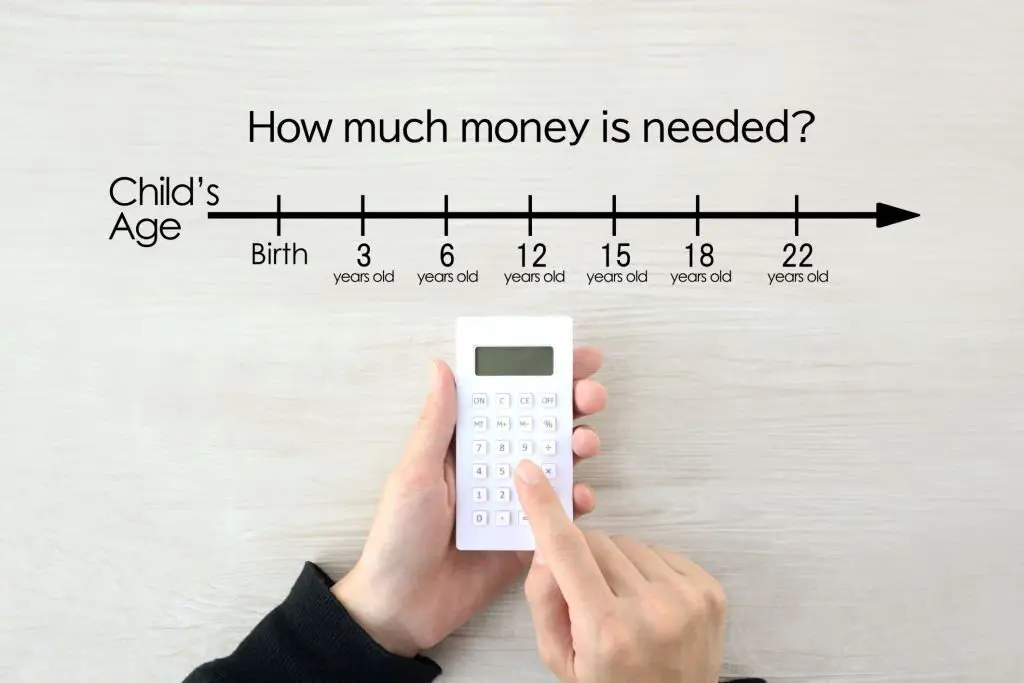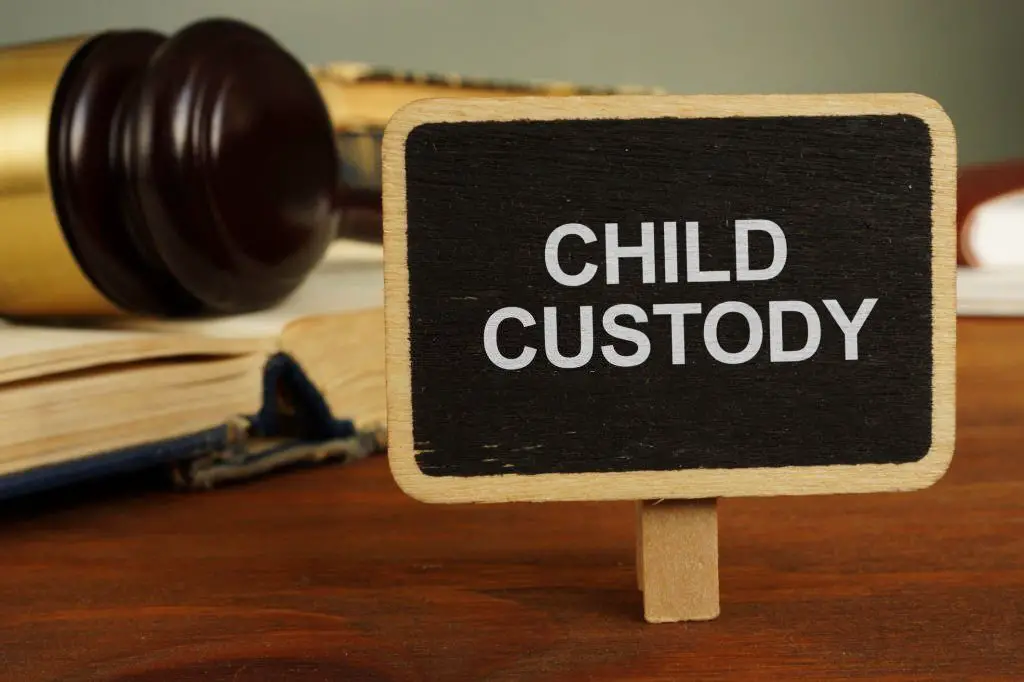
The laws governing child support in Kansas are different from that of other states. KS child support law sets how much the child maintenance should be, and the duration of such payments, plus it seeks to guide parents in exceptional cases such as deviation, support for disabled children, and retroactive support.
As you may already know, child support (or child maintenance) is a continuous monetary payment made by a spouse to another spouse, guardian, caregiver, or the state for the upkeep of children after a divorce or separation.
The person who is required to pay child support is referred to as the “obligor,” whereas the person who is eligible to receive child maintenance is referred to as the “obligee.”
What is KS Child Support Laws?
In accordance with the Kansas Child Support Guidelines, which the Kansas Supreme Court approved. According to revised guidelines that become enforceable on January 1, 2020, both parents are required by law to provide for their children financially after separation.
The law presumes that the parent with primary residential custody—i.e., the one who is the child’s primary caregiver—also pays the required amount of child support directly to the child. The right amount of child support should be determined in accordance with the Kansas Child Support Guidelines.
Even if the parents agree on the amount of child support to be paid, the court must analyze the agreement before issuing a support order. When examining the agreement, the court will use the statutory standards and Guideline regulations to evaluate if the agreed-upon sum meets the needs and interests of the child. The sum may be altered by the court in order to adhere to applicable laws.
What does Child Support Cover in Kansas?
The immediate costs of the child, such as clothing, haircuts, school lunches, etc., are covered by child support. Indirect costs like rent, utilities, transportation, and insurance are also helped by it.
In addition to paying child support, parents frequently split the expense of their children’s medical and dental care, including co-pays, deductibles, and prescription medications.
It is normally the obligation of the parent receiving support to pay for the children’s extracurricular activities unless the parties agree to split the costs of the children’s activities or the court directs the parents to split these expenditures.
Child Support When One Parent Lives Outside Kansas
To enforce child support orders beyond state boundaries, each state has to have the Uniform Interstate Family Support Act (UIFSA) in place. Kansas is no exception.
The UIFSA ensures that child support processes and procedures are consistent across states. When one spouse lives in another state where the Kansas courts do not have authority to adjudicate or enforce orders, UIFSA reduces these bottlenecks.
As a result of the UIFSA, a KS child support attorney can take legal action against a spouse who now lives in another state to enforce a child support order.
How is Child Maintenance Calculated In Kansas?

Learn How Child Maintenance Calculated In Kansas
To calculate child maintenance, Kansas uses the Income Shares model in which payments are based on both the number of children and the parents’ combined incomes. Payments are typically higher when there are more children or a higher combined income.
A parent’s personal income percentage affects how much they pay or receive. Your share of the combined parental income affects how much you pay or receive.
The parenting time category that is applicable has an impact on payments as well. An arrangement for “shared” (about equal) care may result in lower payments.
Kansas Child Support Calculator and Worksheet
While a child support calculator can be used to estimate child support, it is not a guarantee of the final amount of child maintenance that the judge will order. A child support worksheet is a form used by the KS courts (or negotiating spouses) to approximate the basic child support obligation of the parents.
Regardless of which approach you use, spouses can decide on a child support sum and amend the worksheet accordingly to ensure it accurately reflects their agreement. Both establish a presumption duty to pay child support.
The final decision on the amount of child support is made by the administrative law judge, administrator, or court.
How Kansas Guidelines are Applied
The KS court will use child support guidelines, which are law-based and are sometimes known simply as “Guidelines. Guidelines establish a fundamental minimum amount of child maintenance, from which the court can differ after considering a variety of considerations.
The criteria are believed to be rational, and a decision of support that conforms to the guidelines is believed to be in the best interest of the child,” according to the guidelines.
The Kansas Guidelines are based on Net Monthly Income. The court also will employ one of two methods after determining Net Monthly Income:
1. The first method applies if an obligor’s net monthly income is less than $7,500.00. The judge will consider the number of children in the household who are the subject of the petition in this case (note that a different calculation applies if an obligor has children in two different households).
2. The second method applies if an obligor’s net monthly income is more than $7,500.00.
Gross Income Included in Calculating Child Maintenance
For child support calculation purposes, gross income includes:
- all wages and salary, including commissions, military pay, tips, overtime, and bonuses
- self-employment income
- interest and dividends
- net rental income from property the parent owns
Even jobless parents are likely to have some sources of income, like:
- severance pay
- unemployment benefits
- retirement benefits
- veterans’ benefits
- disability benefits, or
- workers’ compensation awards.
A KS family court judge may also allocate an income value to parents who do not currently have income-earning employment (like a second house). If a jobless parent inherits assets that can be sold, for instance, the judge may include the property’s market value as a part of such parent’s income.
Where parents willfully go unemployed or underemployed in order to avoid paying child support, judges may infer (assign) income based on what they are supposed to be earning.
Net Income for KS Guidelines

How to determine Net Income for KS child support
Remove the following costs from the total gross income to get the parent’s net income for paying child support in Kansas:
- Social Security taxes, or any mandated retirement plan contributions if the parent does not pay those taxes.
- Income taxes, both federal and state (based on the tax rate for a single person claiming one exemption)
- union dues
- The KS court has ruled the parent to pay the child’s health and dental insurance premiums, as well as additional medical bills.
Parents who have already paid child support for another kid or children (from a previous relationship) may be eligible for a refund.
Is Medical Health Insurance Part of Child Support in Kansas?

Medical Health Insurance and Child Support in Kansas
Yes, in addition to the amount of support determined by the guidelines in Kansas, the parents will be responsible for the child’s health and dental insurance.
Whereas the noncustodial parent is presumed to provide coverage, this can readily be transferred to the other parent if it makes good sense.
For instance, suppose the custodial parent’s employer offers healthcare insurance for the dependent but the noncustodial parent does not.
Factors Kansas Courts Consider Before Ordering Maintenance
The following factors must be considered by the court when determining whether Kansas Family Code applies:
- The age of the child and needs; the parents’ ability to assist
- Financial resources available to the child
- For a set period of time, you have custody and access to a child.
- An increase or decrease in the obligee’s earnings or income due to the obligee’s property and assets
- Child care expenses incurred by either parent in order to keep a job
- any other children under the care of either party
- Any other children under the care of either party
- What kind of alimony or spousal maintenance is being paid or received;
- Obligor or obligee receives an automobile, house, or other benefits from his or her employer or business entity.
- The parties or the child’s special education, health-care, or other expenses
- The cost of traveling to obtain custody of and access to a child.
- Cash flow from any estate and assets, including real estate, personal property, and business property, can be positive or negative.
How to Challenge or Modify Child Support Order
In Kansas, in order to have a child support obligation changed by the court, there are steps you first need to file a Child Support Worksheet for your present circumstance before submitting a Motion for Modification of Child Support.
Also, note that a judge can only decree a change in child support if
- three years have passed since the last order,
- Clearly, something significant has changed.
– A change in the child’s residential custody arrangement, or
– A shift in the mother’s or father’s income, or
– A shift in the child’s age group.
The modification must result in a monthly difference between the support ordered and the current amount of more than 10%.
When requesting a change more than three years after the last order, no significant change is required.
The amount of support for any month that has already passed and for the month in which the motion for the change is submitted cannot be changed by the court.
When the above requirements are met, the modification process will begin by filing a motion for modification and paying the statutory $59.50 filing fee. After the payment, the court will issue you with a packet of forms including:
1. Motion for Modification of child support
2. Post-Decree Domestic Relations Affidavit with supporting documentation
3. Notice of Hearing and Certificate of Mailing
4. Return of Service for Certified Mail
5. Order modifying Child Support (you will use this at the final hearing on this motion.)
6. Kansas PaymentCenter – Child Support OrderInformation Sheet(you will use this at
the final hearing on this motion)
The instructions come with the packet o can be obtained from the court clerk.
Steps to Collect Child Support in Kansas

Steps to Collect Child Support in Kansas
Getting a child support order in place is only half the struggle in Kansas. You’ll also have to collect the money itself. A noncustodial parent is responsible for paying the full amount of child maintenance per month as imposed by the court. Here are the steps for getting child support in KS
1. Open a Child Support Case
Complete a child support application with your local child support agency/office
2. Locate the Other Parent
To begin the child maintenance procedure in KS, the child support services (CSS) office will use the information provided by the applying parent, as well as information gathered from other sources, to try to locate the other parent.
3. Establish Parentage
It’s critical to establish a legitimate relationship with the child when the other parent has been located. The state will assist you in locating the sufficient means. Parents can choose to acknowledge their parentage voluntarily or organize a genetic screening.
4. Establish a Child Support Order
A Kansas child support order specifies how much the other parent should pay and includes details such as the payment schedule and provisions for the child’s health insurance.
5. Set Up Payment
Deducting child maintenance from a parent’s paycheck and transferring the money to the other parent or guardian is the most typical method of payment. It’s a simple way to make and track child support payments.
6. Enforce the Support Order
Your KS child support services will enforce the child support order if the noncustodial parent does not pay the full amount or does not pay any. Exposing overdue child support payments to credit bureaus, intercepting income tax refunds, and Withholding child maintenance from unemployment or worker’s compensation benefits are examples of other enforcement measures.
7. Review the Order
Three years after the order is issued, either parent can request their local child support office to revise it. They can ask for a reassessment sooner than three years if a parent’s situation has changed significantly, such as loss of employment or imprisonment.
Kansas Child Support Services Office, Number and Login Portal
Kansas Child Support Services
Address: 707 Minnesota Ave #500,
Kansas City, KS 66101,
United States
Phone: +1 913-333-3250
Website: http://www.dcf.ks.gov/services/CSS
Retroactive Child Support Arrears
In Kansas, child support payments are still enforceable two years after the kid becomes an adult. With the right steps, enforcement may last forever.
The statute of limitations under the statutes of Kansas or the state issuing the order, whichever is longer, applies in a case involving arrearages.
The payment shall be made by the non-custodial parent within thirty (30) calendar days after the payment is due. The CSS has the right to trace a delinquent parent across state lines or use other forms of coercion once thirty calendar days have gone and the non-custodial parent has not paid. These include:
- Inform credit bureaus about the defaulting parent.
- An income withholding order that permits automatic payroll deductions may be issued by the judge.
- Liens against real estate, assets, a residence, or a vehicle.
- Suspension or cancellation of professional and recreational licenses.
- If more than $2500 in back child support is needed. The overdue parent’s passport will either be rejected or revoked by the US Department of State.
In general, it’s important to keep in mind that child support payments are made in accordance with court orders. Therefore, failing to pay is against the law and is considered “contempt of court.”
The harshest punishment for disregarding parental financial obligations is incarceration. However, disobedient parents can stay out of jail or prison by simply following their directives.
If you feel the arrears are being demanded wrongly, you can learn how to get child support arrears dismissed HERE.
How to Pay Child Maintenance in Kansas
In Kansas, parents can pay child maintenance in a variety of ways, as long as your order doesn’t state otherwise:
- by debit or credit card,
- mail,
- check
- bank transfer
- direct deposit
- income withholding, or
- auto-draft from a bank account.
How to Check your Child Support Payment History in KS

How to Check Child Support Payment History in KS
When there are disagreements between the parents and a need to confirm how much money is owed, child support payment records are extremely beneficial.
To view your payment history or to see if a certain payment has been received, processed, or disbursed. Visit the KPC website or dial 1-877-572-5722. For more details, click here.
When Does Child Support End in Kansas?
In Kansas, ongoing support continues until the child is granted emancipation (reaches adulthood). That marks the 18th birthday for the majority of kids. The present support order for a child who turns eighteen while still enrolled in high school automatically extends through the conclusion of that academic year.
Nevertheless, if the judge determines that the child is disabled (physically or mentally), the child can receive support perpetually.

Understanding Custody Rights of a Child in Kansas
How Does KS Child Support Work if one Parent Has no Job?
For the purposes of child support, you are still seen as having an income even if you are unemployed. The court will use the imputed income of the unemployed parent rather than their actual income when determining child support for an unemployed parent.
According to the parent’s employment history, job skills, prior wages, available employment prospects in the area, and level of education, the court will often calculate imputed income based on what the parent could have made if they were working.
If a parent objects to the use of imputed income in computing child support, they must give proof to do so, such as evidence that they have made an effort to find work by attending interviews or staying in touch with an unemployment agency.
Is Child Support Tax Deductible in Kansas?
NO. In Kansas child support payments are neither taxable to the recipient nor tax-deductible by the payer as stated by the IRS. Don’t include child support payments when calculating your gross income to see whether you have to file a tax return.
However, either parent may be eligible for a dependency exemption per child. If the parents can’t agree on who receives the exemption, the judge will set out the terms in a court order.
Getting a Skilled Kansas Child Support Attorney
If you are involved in a family law matter in Kansas, you may have a lot more questions than answers at this moment. You are not alone; Correspondence with members has shown that using the services of specialized child support attorneys saves a lot of hassles and most importantly, ensures you come out as a winner for you and your kid.
If you need to fight your child maintenance cause in KS with confidence, then you’ll need attorneys that are both empathetic and strong.
Luckily, we have compiled a database of these expert child support lawyers and made them available for the convenience of our members. You can reach them at the click of a button for legal advice and representation on child maintenance.
Click Here to Get our Free Kansas Alimony recommendation.
Kansas Resource
- Kansas Child Adoption Guidelines
- Kansas Childcare Guidelines
- Kansas Child Custody and Visitation Guidelines
- Kansas Child Support Guidelines
- Kansas Divorce Guidelines
- Kansas Marital Property Guidelines
- Kansas Spousal Support Guidelines
- How to Check Kansas Child Support Payment History
- Kansas Child Support Calculator
Child Support Laws in all 50 States
A - Alabama | Alaska | Arizona | Arkansas
C - California | Colorado | Connecticut
D-H - Delaware | Florida | Georgia | Hawaii
I - Idaho | Illinois | Indiana | Iowa
K-L - Kansas | Kentucky | Louisiana
M - Maine | Maryland | Massachusetts | Michigan | Minnesota | Mississippi | Missouri | Montana
N - Nebraska | Nevada | New Hampshire | New Jersey | New Mexico | New York | North Carolina | North Dakota
O - Ohio | Oklahoma | Oregon
P-S - Pennsylvania | Rhode Island | South Carolina | South Dakota
T-U - Tennessee | Texas | Utah
V-W - Vermont | Virginia | Washington DC | Washington State | West Virginia | Wisconsin | Wyoming




